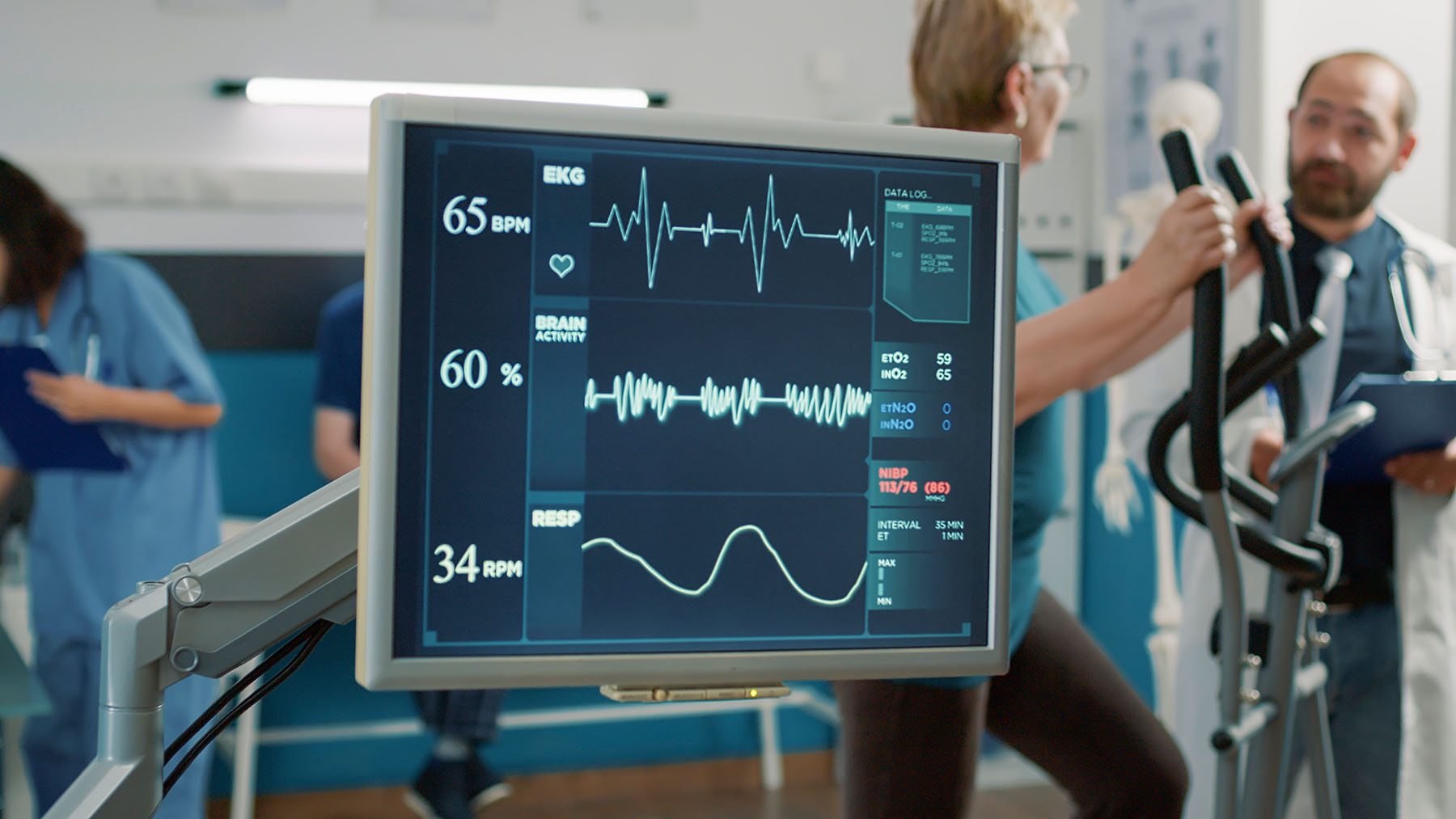A Little-Known Secret to Improve Your Heart Health

If there was a way to improve your heart function, lower your risk of a second heart attack and improve your stamina and strength — without surgery or additional medications — would you try it?
Cardiac rehabilitation at the University of Miami Health System is a comprehensive program designed to help you prevent heart disease and cardiac death by embracing a heart-healthy lifestyle.
“Having heart disease can be a scary and debilitating experience. Thankfully, this secondary prevention program can help our patients regain their health-related quality of life and mitigate the effects of heart disease,” says Jessica Firmeza, DPN, APRN-BC, CCRP, the program’s clinical manager.
What is cardiac rehabilitation?
Cardiac rehabilitation is a 24- to 36-session program focuses on teaching qualifying patients how to reduce their cardiovascular risk factors. The program includes monitored customized exercise sessions plus patient and family education and counselling about reducing your cardiovascular risk factors (hypertension, high cholesterol, diabetes and obesity) through lifestyle modifications, medication management, heart-healthy nutrition, lowering your stress, improving your sleep hygiene, quitting smoking, establishing a support system and enabling open communication with your doctors.
UHealth’s interdisciplinary cardiac rehab team includes a registered nurse, APRN or doctor of nursing practice, a physical therapist and a cardiology medical director. “We are committed to providing personalized care to equip patients to manage their heart disease, regain their independence and achieve their maximum functional level,” Dr. Firmeza says.
What can cardiac rehab help you do?
“It’s never too late for you to start making changes to improve your heart and overall health,” says Sabine Gempel, PT, DPT, aboard-certified cardiovascular and pulmonary specialist with the University of Miami Miller School of Medicine. “Our cardiac rehabilitation team is here to help guide you no matter where you are in your rehab journey. From working to become independent with activities of daily living to returning to hiking a mountain — our nurses, physical therapists and medical director are committed to creating an individualized treatment plan to meet your goals.”
- Improve your physical function, stamina and strength so you can return to daily activities.
- Reduce your stress.
- Lower your pain.
- Quit smoking.
- Follow your prescribed medicine regimen.
- Gain confidence to independently manage your heart disease.
- Improve your mood, mental health and social wellbeing.
- Establish a support system with your family and friends.
Committing to the lifestyle changes you learn in cardiac rehab can help you:
- Minimize your heart disease symptoms.
- Manage your cholesterol.
- Reduce your risk of more heart attacks.
- Stop or reverse damage to your heart and blood vessels.
- Improve your survival rate after a heart attack or cardiac procedures.
- Reduce your risk of death from cardiac and non-cardiac causes.
- Limit your hospital readmissions from cardiac and non-cardiac causes.
- Control anginal symptoms, shortness of breath and fatigue.
- Stabilize or reverse atherosclerosis (narrowing of the blood vessel walls caused by plaque buildup).
Do you qualify for cardiac rehab?
Cardiac rehabilitation is typically covered by health insurance or Medicare if you had:
- a heart attack within the last year
- stable angina
- a cardiac stent or angioplasty
- heart failure with reduced ejection fraction (35 % or less)
- a coronary artery bypass graft (CABG)
- a valve repair/replacement
- a heart/heart-lung transplant
To get started, you must be referred by your cardiologist or primary care physician.
“For anybody with questions about their cardiac conditions or the referral process, we are a phone call away. You can start by reaching out to your doctors for a referral. In some cases, patients ask their healthcare provider how they can return to normal activities of daily living after a cardiac event/procedure,” Dr. Firmeza says. Cardiac rehab is most effective if you start within 10 days of your last coronary event.
“There’s nothing more comforting than the thought that a supportive team is there to walk with you in your heart-health journey,” she says. You and your family were not meant to face cardiac disease alone.”
To make an appointment at UHealth, call 305-689-5635.
Dana Kantrowitz is a contributing writer for UHealth’s news service.
Tags: cardiac rehab, cardiovascular health, heart care in Miami
